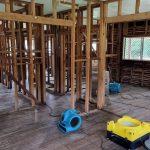When it comes to successfully installing drywall, there are numerous techniques and strategies that can significantly influence the outcome of your project. Whether you are upgrading a room or replacing existing drywall, having a solid understanding of the process is vital. Before you hire a handyman, it’s crucial to grasp several important factors that can affect your project. These include verifying the handyman’s licensing, comprehending the cost of drywall installation, and selecting a qualified professional who aligns with your specific needs and expectations.
Unlocking the Steps to Secure a Handyman’s License for Professional Drywall Installation
If you aspire to thrive in the drywall installation industry, securing a handyman’s license should be your top priority. While not universally mandatory across all states, several jurisdictions enforce this credential to ensure adherence to local regulations and standards. To ascertain whether you need a license, start by investigating the specific licensing requirements pertinent to your state. This research will provide clarity on whether you need to pursue this credential.
For smaller tasks, such as painting or minor appliance repairs, most states do not require a handyman’s license. However, if your ambitions extend to larger projects, you may be required to secure a separate license for each specific task, depending on the local laws governing your area. Understanding these nuances is crucial for anyone looking to work professionally in the handyman field.
Moreover, in addition to obtaining a handyman’s license, securing insurance is essential for anyone operating within this domain. A comprehensive contractor’s liability and property damage insurance policy will shield you from potential injuries or damages that may occur during the job. If you plan on hiring employees, then workers’ compensation insurance becomes a necessary requirement. Careful evaluation of construction plans can help you estimate both material and labor costs accurately, allowing you to submit competitive bids without sacrificing quality.
When pursuing a handyman’s license specifically for drywall installation, certain standards and criteria must be met. For instance, in Georgia, applicants are required to pass both trade and business law examinations. Additionally, having a minimum of two years of verifiable experience as a handyman, along with proof of general liability and workers’ compensation insurance, is typically essential. If your work involves projects exceeding $1,000 or requires construction permits in different jurisdictions, such as Hawaii, a general contractor’s license will also be necessary to comply with local regulations.
While a handyman’s license for drywall installation isn’t universally mandated, it is highly recommended if you are planning to undertake more extensive work beyond basic repairs and installations. Each state has its unique requirements; however, they generally entail having liability insurance and a handyman’s license to protect against potential legal issues and property damage claims.
To achieve success as a handyman, it is vital to familiarize yourself with the varying standards and licensing requirements across states. There can be significant disparities regarding handyman licenses at the local level, making thorough research essential for those intending to manage a variety of projects effectively.
Analyzing Drywall Installation Costs: A Detailed Cost Breakdown
The overall cost of drywall installation is influenced by numerous factors, including the scope of the project and the specific types of materials required. For example, larger holes often necessitate complete drywall replacement, which can drastically affect the total cost. Furthermore, the quantity of materials needed will directly impact both material and labor expenses, making it crucial to accurately assess the job’s size. A skilled handyman can frequently complete smaller tasks in just a few hours, which can be a cost-effective solution.
Conversely, major drywall repairs caused by extensive holes or water damage demand more time and effort. In more severe situations, the entire drywall section may need to be removed and replaced, which can escalate costs significantly. This scenario often requires the expertise of a professional with specialized skills, further increasing the total expenses involved in the project.
Effective planning and preparation are paramount when it comes to drywall installation. A thorough list of required supplies and tools is essential for a successful project, and the overall cost will be determined by both the size of the area to be covered and the complexity of the job at hand. Handymen often require the assistance of additional workers, particularly for larger projects, which can further influence costs. Additionally, the installation price may vary based on whether prep work and cleanup are necessary. Complex ceiling designs or the presence of numerous corners can also contribute to increased material and labor expenses.
The type of drywall selected will play a crucial role in determining the overall installation cost. Standard drywall is widely used in most commercial constructions due to its versatility and comes in various widths and thicknesses to suit different needs.
For larger tasks, the expenses can accumulate rapidly. The total cost largely hinges on the project’s size and intricacy. Smaller jobs might exhibit a higher cost per square foot; however, drywall remains a more cost-effective option compared to other construction materials available on the market today.
While hiring a handyman may appear to be a cost-effective solution, engaging the services of a drywall specialist can offer distinct advantages. Specialists possess the necessary expertise required for tasks ranging from removing popcorn ceilings to constructing drop ceilings. Their extensive experience with taping joints and applying textures can ensure a superior quality of work. Additionally, they can adeptly handle issues such as water damage, hole repairs, and more intricate texture applications.
When selecting a drywall contractor, it is essential to obtain a detailed contract that clearly outlines the project scope and associated costs. The contract should specify the number of drywall sheets required, the type of materials to be used, and a comprehensive breakdown of both labor and material costs involved.
Steps to Select the Ideal Handyman for Your Drywall Projects
Before proceeding to hire a handyman for drywall installation, it’s vital to ask several key questions that will facilitate an informed decision. Start by inquiring about the projected timeline for the project. Even the most proficient drywall installers may have varying schedules, so understanding the timeframe is essential to avoid dissatisfaction upon the project’s completion.
It is advisable to interview at least three potential handymen before making your final choice. During these interviews, ask about their prior experience and request references from previous clients. Ensuring that the handyman you select possesses the necessary skills and tools for the job is critical in achieving the best possible outcome. Additionally, confirming that their services align with your budget is equally important.
Next, evaluate the potential costs associated with drywall installation. By comparing bids from various contractors, you can gain valuable insights into the prevailing rates for your specific project. A reputable contractor should provide a detailed cost breakdown, encompassing all materials, supplies, and any additional expenses to ensure transparency.
Verifying credentials and insurance is another critical step before hiring a handyman. Obtaining a written contract and references can offer peace of mind and help you confirm that the handyman is the right fit for your project. Requesting examples of their previous work will further solidify your confidence in your decision-making process.
An adept handyman should possess a diverse skill set, enabling them to manage a wide range of tasks effectively. For example, if your ceiling has a hole requiring drywall installation, a competent handyman should be equipped to handle that undertaking. They should also be capable of assisting with related tasks, such as installing new light fixtures or repairing popcorn texturing.
Thoroughly check the handyman’s experience and references before making any commitments. An experienced handyman is more likely to execute the job competently, thereby increasing the likelihood of a successful project. It’s wise to avoid contractors who employ high-pressure sales tactics or have inflated advertising budgets, as these may be red flags.
Keep your budget in mind when hiring a handyman for drywall installation. An efficient handyman should be able to complete the job promptly while respecting your property. They should also prioritize cleanliness, ensuring that the workspace is tidy once the project is completed.
A handyman well-versed in the intricacies of plumbing and electrical systems is an excellent choice for addressing leaks or tackling related tasks. They can also assist with a variety of projects, including hole repairs, light painting, deck repairs, and drywall installations.
Finding a reliable handyman in your area is entirely achievable. Explore online reviews and seek recommendations from friends and family. Additionally, don’t hesitate to ask your handyman for client references to verify their reputation and capabilities.
The post How Does a Handyman Do Drywall Installation? appeared first on https://gqcentral.co.uk
The Article Drywall Installation Techniques by a Handyman Was Found On https://limitsofstrategy.com






Comments are closed